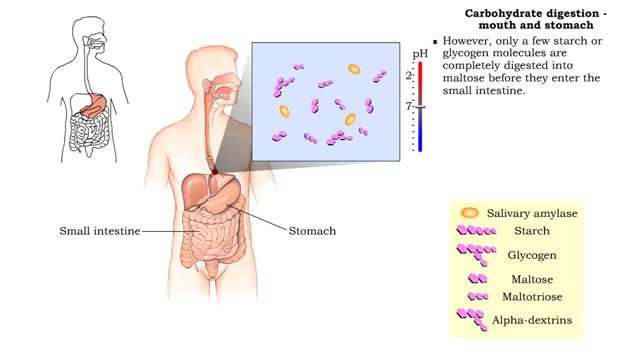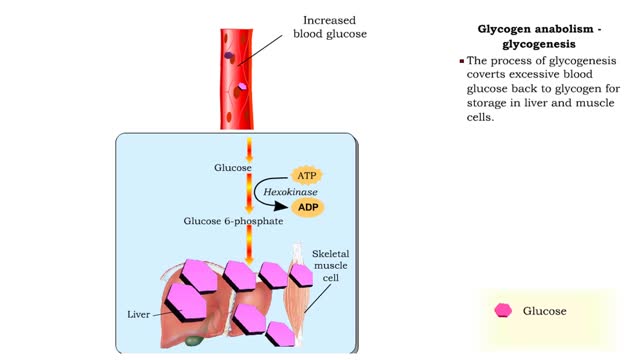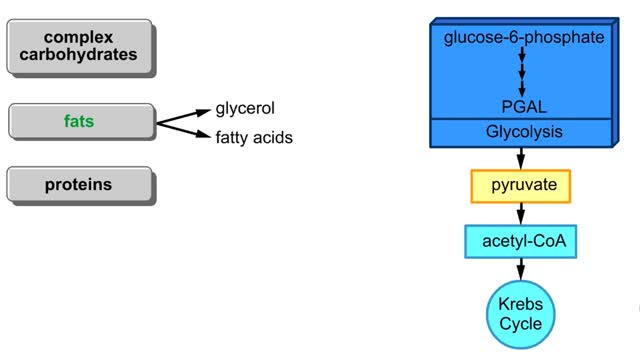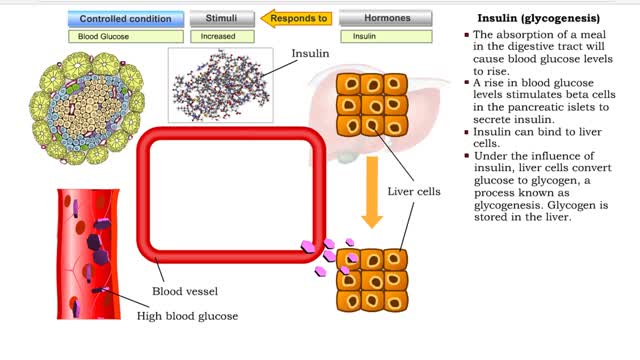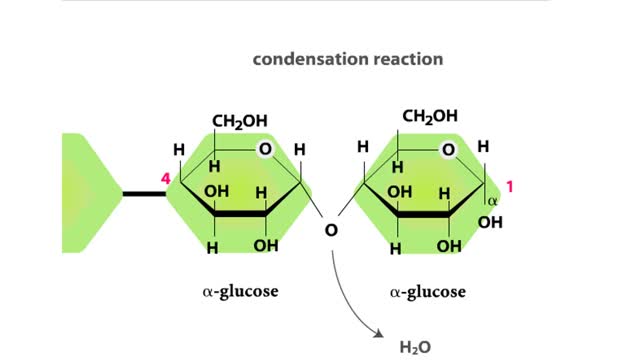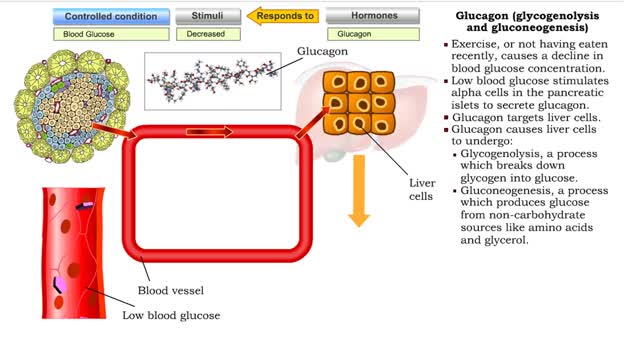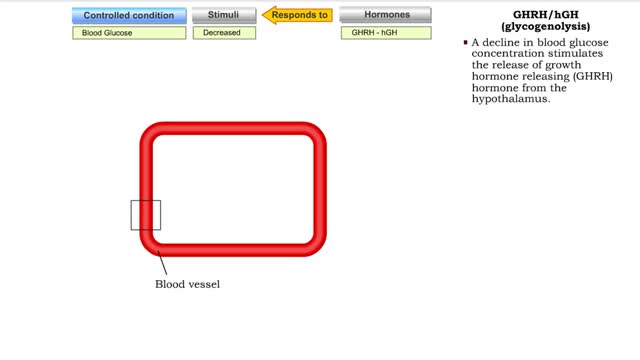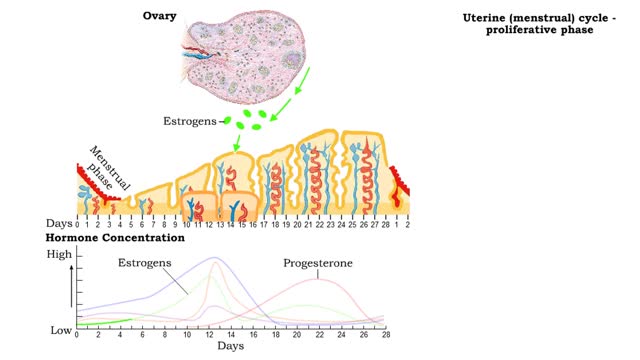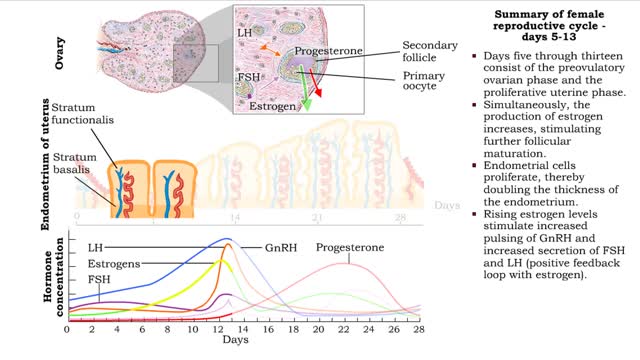Search Results
Results for: 'glycogen'
Carbohydrate digestion - mouth and stomach & pancreas and small intestine
By: HWC, Views: 11588
ŌĆó Digestion of complex carbohydrates (starches and glycogen) involves: ŌĆó Amylases produced by the salivary glands and pancreas. ŌĆó Brush-border enzymes in small intestine. ŌĆó In the mouth, amylase from the parotid and submandibular salivary glands begins carbohydrate digestion. ŌĆ...
Glucose anabolism reactions: Glycogenolysis and Gluconeogenesis
By: HWC, Views: 12057
ŌĆó Glucose not needed immediately is stored as glycogen. The process that creates it is glycogenesis. ŌĆó When ATP is needed for body activities, stored glycogen is broken down by a process called glycogenolysis. ŌĆó Glucose can be formed through two different anabolic reactions: ŌĆó Glycog...
By: HWC, Views: 5922
Points at which organic compounds enter the reaction stages of aerobic respiration. Complex carbohydrates are broken down into simple sugars, such as glucose. They become the substrates for glycolysis. If your body doesn't need to burn glucose for energy, glucose-6-phosphate can be co...
Insulin (glucose uptake by body cells), glycogenesis and lipogenesis
By: HWC, Views: 11942
Insulin is the regulator that allows the sugar from the foods we eat (be it a piece of cake or a stick of celery) to enter our tissues and become part of the metabolic process. Insulin is made by the Islets of Langerhans, which are found in the pancreas of every person. As we previously mentio...
Major Elements in Biological Molecules: Carbohydrates
By: HWC, Views: 11268
Carbohydrates include simple sugars (monosaccharides) as well as large polymers (polysaccharides). Glucose is a hexose, a sugar composed of six carbon atoms, usually found in ring form. A starch macromolecule is a polysaccharide composed of thousands of glucose units. Glucose molecules can be ...
Glucagon (glycogenolysis and gluconeogenesis)
By: HWC, Views: 11553
ŌĆó Exercise, or not having eaten recently, causes a decline in blood glucose concentration. ŌĆó Low blood glucose stimulates alpha cells in the pancreatic islets to secrete glucagon. ŌĆó Glucagon targets liver cells. ŌĆó Glucagon causes liver cells to undergo: ŌĆó Glycogenolysis, a proce...
Hormonal feedback loop components & Glucagon (glycogenolysis and gluconeogenesis)
By: HWC, Views: 11489
The endocrine system maintains many body conditions within normal limits with feedback loops. Each endocrine feedback loop maintains homeostasis using the following components: ŌĆó Stimulus - a change in a body condition. ŌĆó Production cell - an endocrine cell that produces a hormone after ...
Uterine (menstrual) cycle - phases
By: HWC, Views: 11633
ŌĆó The uterus goes through a cyclical developmental pattern to be ready for implantation and support of an embryo. ŌĆó The uterine, or menstrual, cycle is under the control of ovarian horrnones. ŌĆó The uterine cycle also has three phases: ŌĆó Menstrual phase ŌĆó Proliferative phase ŌĆ...
Summary of female reproductive cycle days 1-28
By: HWC, Views: 12177
Ō¢Ā The first five days of the cycle include the menstrual phase. Ō¢Ā Progesterone and estrogen levels are low. Ō¢Ā Menses occurs. Ō¢Ā GnRH pulses more frequently promoting FSH and LH levels to rise. Ō¢Ā Primary follicles are stimulated to develop. Ō¢Ā Days five through thirteen consist o...
Advertisement



